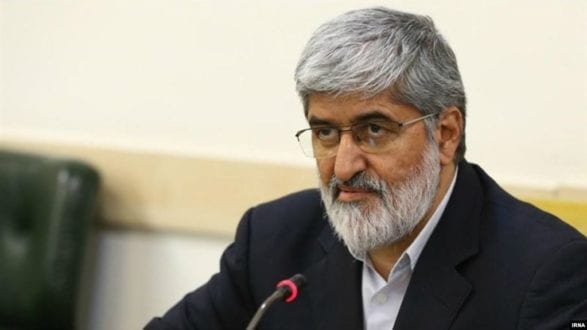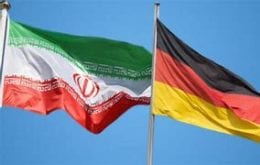Iranwire- After a period of relative circumspection, some Iranian officials and political figure have again recently become more overt in their speculation about Tehran some day making a nuclear weapon. Ostensibly the fatwa by Supreme Leader Ayatollah Khamenei rules out this possibility, but it has also been pointed out that Khamenei could declare this null and void if he wanted to.
Ali Motahari, the very conservative but maverick former deputy speaker of the Iranian parliament, has become the latest to openly go against the official position the Islamic Republic puts forward to the world. “From the very beginning,” he told the Iranian Student Correspondent Association (ISCA) in an interview on April 24, “when we started our nuclear activities, our goal was to make the bomb, but we failed to keep it a secret.”
Motahari went on to state it was the opposition People’s Mojahedin Organization (MEK) that tore away the supposed veil of secrecy. “If we could make the bomb like Pakistan, in secret, and test it, “ he said, “it would have been a very powerful deterrent. Other countries count on their nuclear might and I believe we should have finished what started.”
New Wave of Officials Breaking Rank on the Nuclear Issue
From the 1950s through to the Iran-Iraq war in the 1980s, a number of senior Iranian political figures openly called for the creation of a nuclear bomb. Writing in his memoirs of September 5, 1982, Hashemi Rafsanjani writes that even in the early aftermath the Islamic Revolution, “in those years our minds were filled with idea that we must arm ourselves with a deterrent.”
According to a letter revealed 27 years after its creation in 2015, the former IRGC commander Mohsen Rezaei – today Iran’s vice president for economic affairs – was one of those petitioning for the creation of nuclear weapons in the final years of the Iran-Iraq war. He has not, however, repeated the call in public since the war ended.
Former president Hassan Rouhani has since disclosed that Mohamed ElBaradei, ex-Director General of the International Atomic Energy Agency (IAEA), suggested to him that in order to resolve the issue of the investigation into so-called PMDs (“possible military dimensions”) of Iran’s nuclear program, he announce that Iran had been after a nuclear bomb during the war, but had stopped when the war was over.
More recently, however, and despite Khamenei’s 2012 fatwa decrying “immoral” nuclear weapons, a few scattered individuals have talked again about their necessity. In February 2021, then-Intelligence Minister Mahmoud Alavi said on TV: “The fatwa of the Supreme Leader of the Islamic Revolution has declared nuclear weapons are forbidden. But if they push the Islamic Republic of Iran in that direction, it would no longer be Iran’s fault; rather, it would be the fault of those who have terrorized Iran.”
In November 2021, Fereydoon Abbasi-Davani, a former head of Iran’s Atomic Energy Agency from 2011 to 2013, confirmed that the assassinated nuclear scientist Mohsen Fakhrizadeh was active in a program to build nuclear weapons. This was the first such admission from a government official in the history of the Islamic Republic.
“It is quite clear that our restraint about nuclear weapons was based on the explicit fatwa by the exalted Supreme Leader,” Abbasi-Davani said. “But Fakhrizadeh created the system, and his motive was not only defending our country – because our country supports the [anti-Israel] Resistance Front… And it wasn’t only Mr. Fakhrizadeh.”
Ahmad Bakhshayesh Ardestani, a former member of the parliament’s National Security and Foreign Policy Committee, was more explicit: “Making nuclear weapons is the only means the Islamic Republic of Iran has to free itself from political, diplomatic and security challenges and stalemates related to the JCPOA [the nuclear agreement] and its nuclear activities.”
 Shabtabnews In this dark night, I have lost my way – Arise from a corner, oh you the star of guidance.
Shabtabnews In this dark night, I have lost my way – Arise from a corner, oh you the star of guidance.



